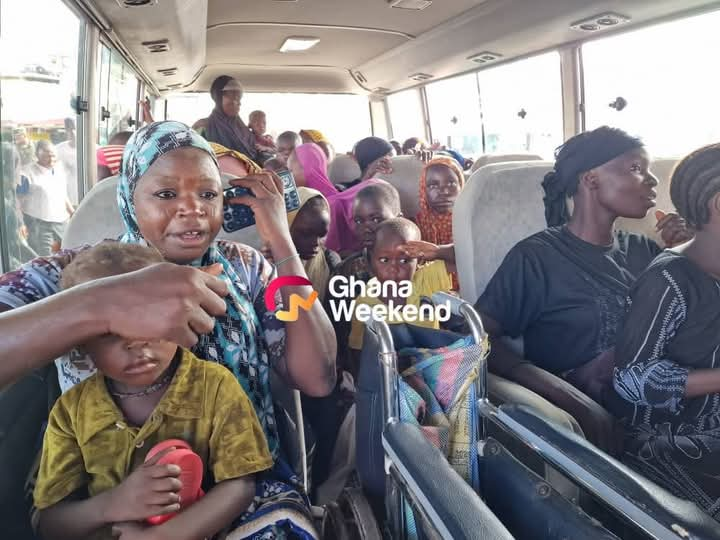
Ghana Immigration officers have arrested more than 1,000 street children and their guardians in a massive crackdown on streetism, illegal residency, and potential national security threats in key parts of Accra.
The dawn operation, conducted on Friday, May 16, targeted known streetism hotspots including Kaneshie, Abossey Okai, and Kwame Nkrumah Circle areas notorious for heavy concentrations of child beggars and street vendors.
Eyewitnesses observed uniformed officers rounding up women and children, many suspected to be foreign nationals, and escorting them into immigration vehicles. The exercise combined direct engagement with swift relocation from the streets and intersections where they typically seek alms.
Immigration authorities say the move is part of a broader national effort to address child exploitation, reduce urban congestion, and enhance public safety. The operation also aims to identify and repatriate non-Ghanaians residing in the country without proper documentation, many of whom are suspected of being trafficked or involved in organized begging rings.
Officials confirmed to Citi News that identification processes are underway for those arrested, with repatriation procedures expected to follow for foreign nationals.
The operation has received support from sections of the public who see it as a necessary response to the worsening problem of child streetism in urban Ghana.
However, child rights advocates have called for a more sustainable and humane response to the issue. Dr. Ernestina Tetteh, Convener of the Coalition for Street-Connected Children Organisation (CSCCO), stressed the structural roots of the problem during a recent interview on the Citi Breakfast Show.
“Many of these children come from countries like Chad and Niger. What we used to call ‘salaka’ has now become a deeply entrenched issue. It’s no longer just a social problem—it’s transnational and organized,” she stated.
Dr. Tetteh urged the government to partner with neighboring countries and social welfare agencies to develop a comprehensive strategy that addresses the root causes of child streetism and trafficking.
 GhArticles.com Every News in Detail
GhArticles.com Every News in Detail



